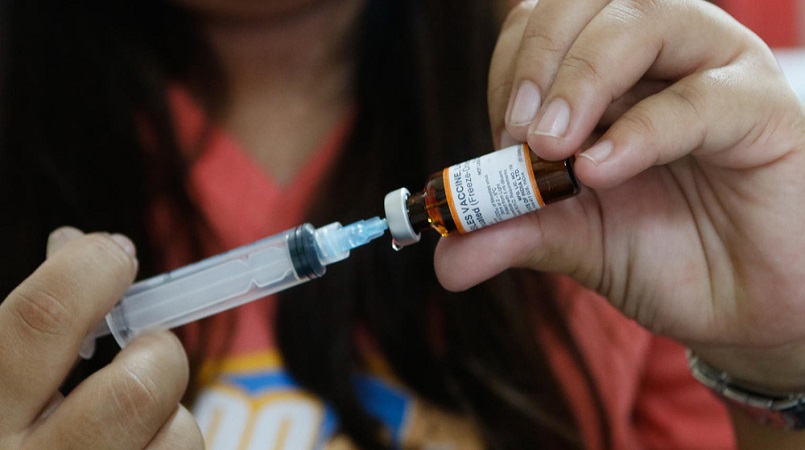
Health officials in Samoa say low immunisation coverage – driven by parents refusing to vaccinate their children – is fuelling a measles outbreak that has killed at least 15 people and forced the Pacific Island nation to declare a state of emergency.
A global resurgence in vaccine-preventable measles has spread to parts of the Pacific Islands over the last month: Samoa has counted more than 1,000 suspected cases, which include the deaths of 14 children. Tonga and Fiji have also declared outbreaks in recent weeks.
“The way it is going now and the poor [immunisation] coverage, we are anticipating the worst to come,” Leausa Take Naseri, Samoa’s director general of health, said at a press conference announcing emergency measures.
Samoa has started mass vaccination campaigns and shuttered schools nationwide, postponing university exams scheduled for this week.
Measles is highly contagious, but entirely preventable through vaccines. In Samoa, coverage rates last year dropped to 40 percent and 28 percent for the two-dose vaccine, according to UNICEF – far lower than the 95 percent needed to stem measles from spreading. Vaccine scepticism in Samoa worsened last year when two infants died after receiving vaccines that were mistakenly mixed with an anaesthetic.
The spread of measles in the Pacific Islands may be linked to New Zealand, which has recorded more than 2,000 confirmed cases this year. Health authorities in Tonga say measles cases first emerged among a rugby team that travelled to New Zealand; the country now has at least 251 suspected cases. Fiji reported seven confirmed cases as of 19 November.
The outbreaks in the Pacific are part of a rapid measles surge across the globe. In August, the World Health Organisation said there were three times as many cases in 2019 compared to last year.
Major outbreaks have also erupted in countries including the Democratic Republic of Congo, Madagascar, Ukraine, Angola, Cameroon, Chad, Nigeria, and the Philippines. The WHO says misinformation leading to “vaccine hesitancy” is one of several causes, as are poor health services and access interrupted by conflict or disaster.
In the Philippines, for example, the WHO says public confidence in vaccines “plummeted” after an unrelated vaccine for dengue, a mosquito-borne illness, was shown to increase the disease’s severity among some patients. This year, Philippine health authorities have recorded more than 42,000 measles cases, including more than 560 deaths, according to the UN’s aid coordination arm, OCHA.
